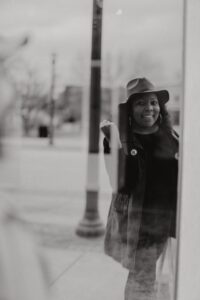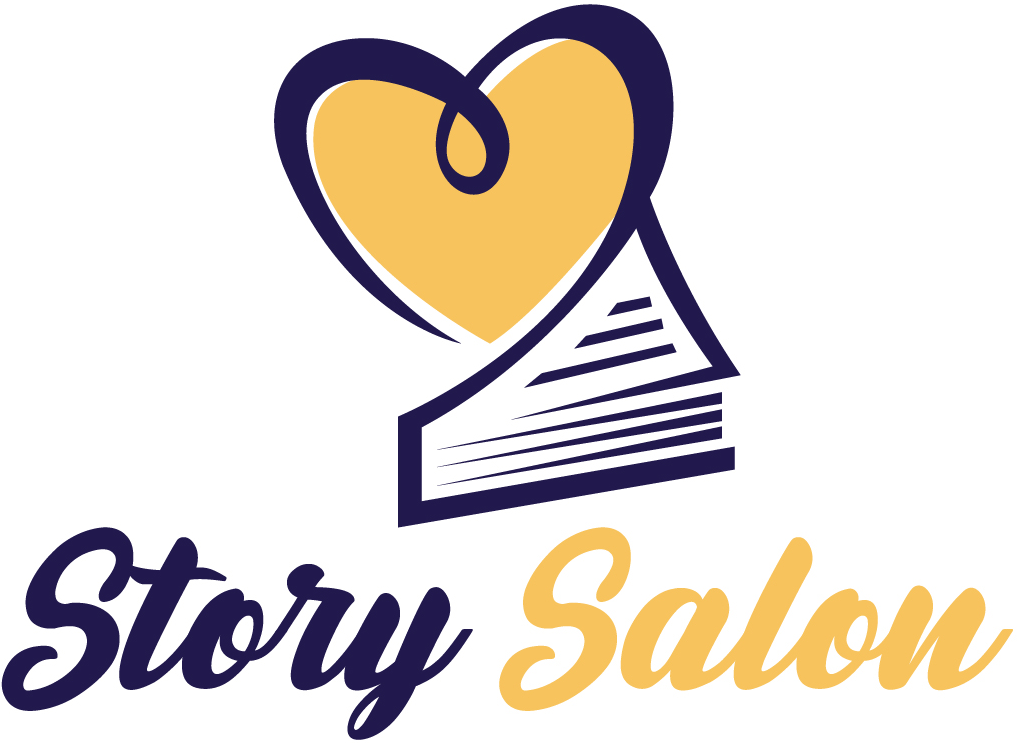Interview with Ronnika Williams
Interview by Amy Phillips

Amy Phillips: I talked with Ronnika about her Final 48 Project. The “Final 48” refers to the last two days before her father died. I asked her why she decided to do it.
Ronnika WIlliams: I started doing it, I don’t even know if it was a year after his passing. The conversations [with my father] came up with one of my good friends, Kendra, who lives in Houston. I would say she was the friend who actually helped guide me through the grieving process because she … lost her father maybe almost a decade prior. I told her that it was something about those last two days with my father that had me just: I always can recall vividly what those conversations were; not even just with him but with everyone surrounding me. Like, just a lot of things that happened, the smells, the places. I can just replay that over and over again. So, as I continue to talk to friends and family (actually Malika was one of the ones I talked to also!) about what those last two days look like with that person that you love. It was almost like no other time mattered. But, no, I can remember where I was those last two days. Even if I wasn’t present when that person died, I still remember where I was those last two days of their life and how it has impacted me moving forward.
So, I started the Final 48 Project because those stories gave me hope; they gave me strength during a time when I felt really broken. So I said if these stories are helping me, I can only imagine how they can help others. I noticed that people in the black community just don’t talk about grief. It wasn’t just my family, it was across the board. It was just: we plan the funeral, we have the repass (the dinner after the funeral), and then we just go about our lives and we’re not talking about the person we lost. Yet, we’re living with that everyday. That was really the reason for me traveling the country collecting those stories because I really wanted people to see, especially online, that “I grieve too.” There is no correct way to grieve, you chose what’s best for you.
Another related reason is that my sister and I went to grief counseling and we noticed no one else in the room looked like us. I think that’s because historically we’ve been told, hey you keep it moving. I had to learn grief is universal but my story isn’t going to look like anyone else’s.
AP: Why do you think you and your sister sought out grief counseling despite the fact that it’s not common among black communities?
RW: Well, at the time I relocated from Texas to Michigan. I was seeking a job through a temp agency and one of the job specialists asked me why I was in the area. When the specialist found out why I came back, she recommended I do grief counseling.
So going to counseling: someone had to be brave in the room. My sister said she wouldn’t have went on her own. In my family I’m the risk taker (but good risks). I knew I didn’t want to keep feeling like this so what was going to help? I knew no one could guide me through this, but I wanted a few tips. So, I told my sister I was going and she said I’ll go with you. So literally we locked arms and walked that journey together. So if no one else understood this journey, my sister did. We were both without a father.
AP: Why did you start your own publishing house and what are some of the titles of your books and where can we find them?
RW: It’s funny because a lot of my stories tie back to the 48! In that final 48 I gave my dad three promises: go back to grad school and graduate high honors; write children’s books and dedicate the first one to you; then I said I wanted to do documentaries to tell the stories of people in my community. I grew up in a small predominantly black community called Benton Harbor Michigan.
Even before pursuing library science and before that, history, I didn’t see a whole lot of characters who look like me. So I took a lot of my experiences and started writing about them, whether it was a blog or children’s books. I started using free resources that were offered by the library: “how to self publish” –okay yeah lemme sign up for this class. Even though I was still in library school, I thought, I can use an afternoon on a Saturday and learn how to self publish!
I used my experience from when I was working at the Museum of the Confederacy (which is now the American Civil War Museum) in Richmond Va. From this and other internship experiences, it made me want to tell stories about history from all sides.
So, when it comes to self-publishing: I wanted to get the stories out there but I didn’t want to beg for acceptance to tell my stories.
Now, the Adventures Alleykats: The first book is called The Missing President and can be found on Amazon. Also at some black owned independent bookstores like The Listening Tree in the Atlanta area, and Hakim’s in Philadelphia. These books are intended for ages 7-11

